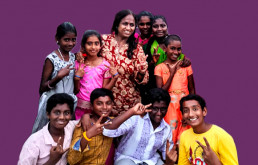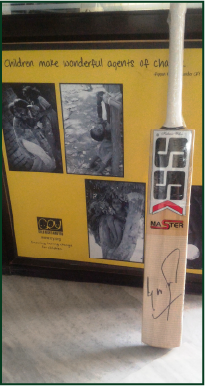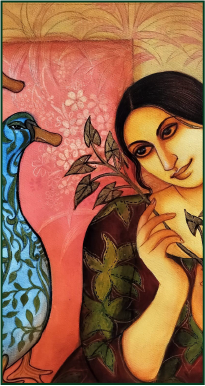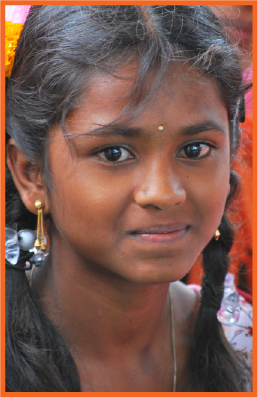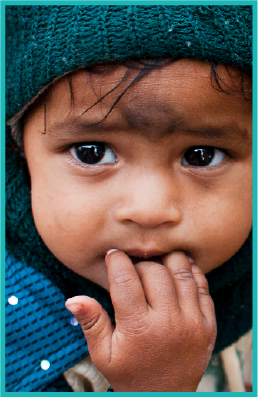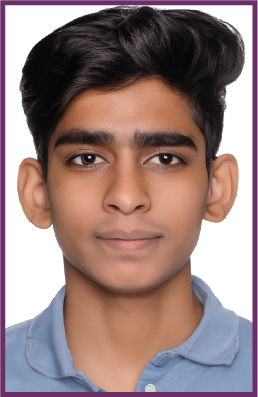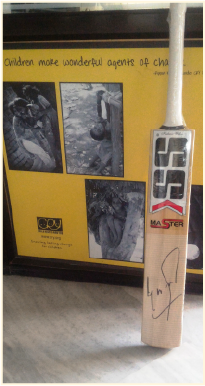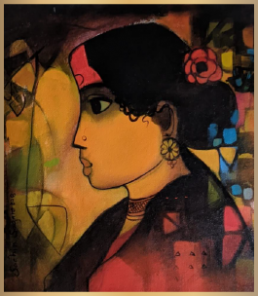Salem People Trust: Fighting Against the Extremes of Discrimination
Throughout vast regions of India, the endangerment of the girl child begins at her conception. Despite laws that forbid in-utero sex determination, sex-selective abortion (justifiably termed “feticide” in this context) remains a persistent trend, owing as much to generational poverty as to long-held, discriminatory beliefs and practices.
My recent visit to CRY America-supported project Salem Peoples’ Trust (SPT), which works in two districts in central Tamil Nadu (Salem and Dharmapuri), was both inspiring and heartbreaking in equal measure. My colleagues and I were stunned to learn from project partner Jayan Guru that the rate of female feticide in the villages throughout had been 28%. Those girls who had survived their own births had scant opportunity to thrive to their full potential. As most families in the region are saddled with chronic debt due to lack of livelihoods and a poor wage structure, girls are often seen as a financial burden rather than as a potential doctor, police officer, or pilot. Daughters are often hastened into early marriage, or forced into child labor as families struggled to save the little that they earned.
Boys and girls from families who live in the remote interiors find themselves far away from schools and Anganwadis (early childhood health and education centers), which results in a heightened dropout rate. Children who can make it to school are met with unhygienic toilets, unreliable electricity, and a generally uninviting atmosphere.
With so many issues disrupting so many childhoods in the region, it was difficult to not feel overwhelmed – especially as a first-time visitor. But as we learned about young Kirubavathi, and how SPT helped her to beat the odds, my colleagues and I became resolute in the belief that these vulnerable children are under close watch and capable care.
Kirubavathi lives with her parents and two younger sisters in Karipatti village, Salem. Her parents are daily wage workers, whose meager income is hardly enough to support the family.
When Kirubavathi was in 6th grade in 2008, her high school was demolished to make way for the National Highway. However, the replacement school was never constructed. Instead, the demoralized children had to attend classes in the shade of a tree near the demolished school. Those who mismanaged the construction project likely never spared a thought about the toll that the school’s absence would exact: nearly 100 children were now at a risk of becoming child laborers or victims of child marriage.
Kiruvbavathi herself became a statistic. Desperate and disillusioned, her parents gave up on the idea of a proper education for her. They decided to take her with them for daily wage work.
At the time, Kirubavathi was also a part of SPT’s children’s collective. These collectives are a unique component of CRY America’s model for lasting change, and have been implemented in projects across India. The collectives empower children by providing them with a safe space where they can express themselves freely and discuss their dreams, problems, and rights to education, health, protection, and participation. Collective members also share experience and information on child marriage and child labor among themselves, ensuring that such exploitation doesn’t go unnoticed.
Since Kirubavathi had started working with her parents, she had stopped attending the meetings. When our team members took notice, they inquired with the other children and came to know of the situation. Bharati, one of the coordinators, spoke to Kirubavathi and discovered that Kirubavathi wanted to study but had been pulled out of school due to circumstances beyond her control.
Bharati and the team then met with Kirubavathi’s parents and asked why she had stopped participating in the sessions and attending school. The team explained to her parents the importance of focusing on their daughter’s education so that she could obtain a higher paying job in the future, and that her health may be affected by working as a laborer at such a young age. They even informed her parents that the project team was petitioning for a new school, which would soon be constructed.
Subsequently, Kirubavathi was re enrolled to school and was also enrolled into the supplementary evening classes organized in the village by volunteers. The team also followed up on her regularly; as a result, Kirubavathi completed school through grade 12.
But as soon as Kirubavathi completed her grade 12 board exams, her relatives started talking to her parents to try and get her married soon. They believed that there was no point in continuing her focus on education because even when she got a good job and was married in the future, her earnings would still go to her in-laws, as per tradition.
But Kirubavathi’s parents remained strong against their relatives’ pressure, thanks to the guidance they had received from the SPT project team. They now understood the importance of education for their daughters: Kirubavathi was admitted to a government college where she opted to pursue a B.sc. in Microbiology.
She has since graduated and is working as a lab technician. Her family is proud of her success, and grateful for the support that she now can provide with her legally earned, adult income. Like many successful young women from CRY America-supported villages, Kirubavathi has become a role model in the community. Achieving her career goals not only set an example for other girls – it has provided vital momentum toward changing the minds and hearts of her community about what a girl is capable of.
Kirubavathi continues to inspire. She’s now a volunteer teacher for evening classes, through which she aims to create a strong interest in learning among community children. Her hope is that at least 10 girls from her village can change the age-old script and become doctors, nurses, or engineers. She told us, “if it were not for the SPT team members, my story would have been much different. I am most grateful to have received such thoughtful and caring guidance.”
Support Projects like SPT by donating on: https://www.cryamerica.org/donation/












